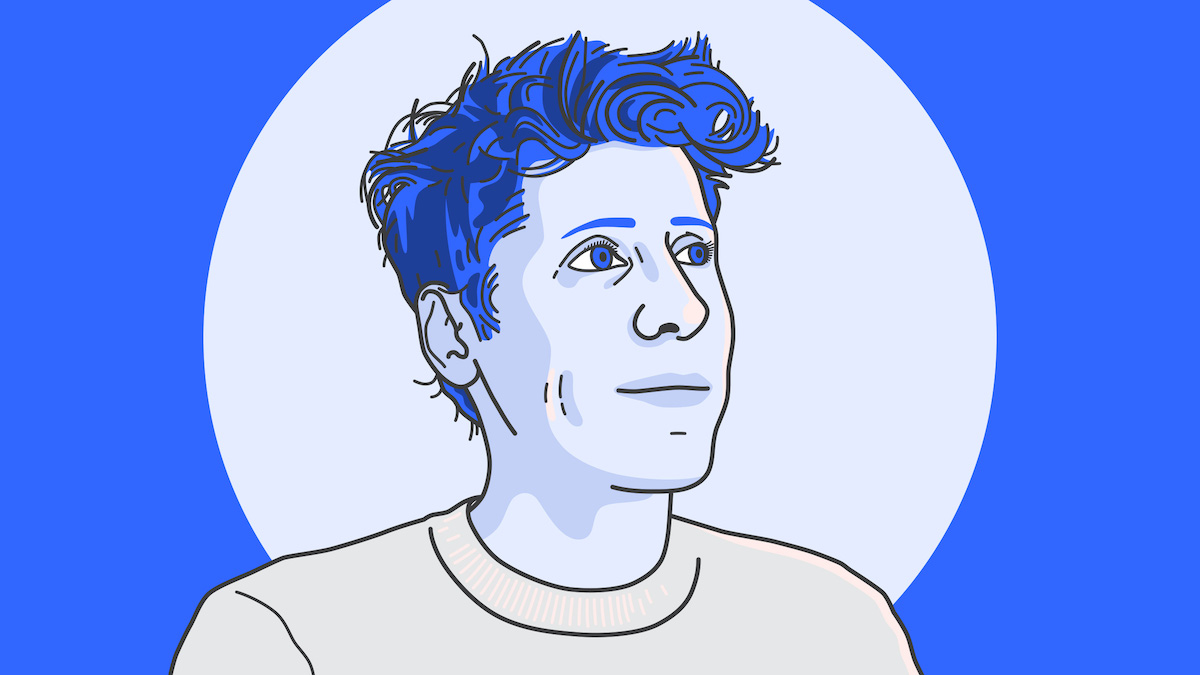
How Silicon Valley’s Wunderkind Came Out in a Midwest High School
You may know Sam Altman as the entrepreneur who led the Silicon Valley incubator, Y Combinator. Or as the guy who founded OpenAI with Elon Musk. But before his successful career in tech, he was just a high school student navigating the complicated process of coming out in St. Louis in the early 2000s.
Read an edited transcript below, or listen to the full interview on the First Contact podcast.
I don’t really get nervous for stuff and I was so nervous to do this.
Sam Altman: There had been one semi-openly gay guy in my high school before me. And he had an okay time, but was happy to leave. We were in a, (relatively conservative by current standards, but) for St. Louis at that time, pretty open-minded school…We had this thing that you could do where anyone who wanted could give a five-minute speech to the whole school any morning when we’re all together for assembly. So I went home and I wrote the speech that I wanted to give…But at the time, it felt like a very scary thing to do. And I remember sort of like being up all night…I don’t really get nervous for stuff and I was so nervous to do this. Because I was like, mostly out. Most people knew about it but it was not the kind of school where you would really stand up and talk about being gay and that was okay. And I almost didn’t go through with it. I almost changed the speech to not put my own personal story in there. I remember very clearly sitting in the hallway outside of assembly with this pen, changing the section where I told my own story back and forth like three times, because I just couldn’t do it.
And I don’t even know why but I finally was like, “You know what? Like, I’ll just tell everybody I’m gay. Whatever. Like, what’s going to happen to me?” And then, it was sort of this moment where you kind of just go on autopilot. But I remember, I was like 17. This is half of my lifetime ago. So it’s amazing how clearly I still remember this. But I remember sort of walking out to the podium and sort of these bright lights. And thankfully, you can’t really see individual faces out there.
…I got a long standing ovation out of it and sort of all day at school that day, people telling me how much it meant to them. And that they really thought I was right. I had some younger students come to me in tears…one had been almost suicidal…And then after that, I think a bunch of people came out and it was sort of a different environment. So it was this really great moment. I’m happy I did it but it was so terrifying to do at the time.
Laurie Segall: How did you feel?
Sam Altman: When it was done, I felt relief. I was like, whether that was a good or a bad thing, I was so nervous and now it’s over. And I did the thing that I think was right and now whatever happens, happens.
Laurie Segall: …Mm-hmm
Sam Altman: …I still feel like, you know what? If people have a problem with gay people, that’s fine. They can go somewhere else. This thing that Condoleezza Rice said, that her mother told her once, has really stuck with me, which is like, “If people don’t want to sit next to you because you’re black, that’s fine as long as they’re the ones that get up and move.” And so, still, if people have a problem, I’m sure people do, with me for being gay, like whatever. They can go do their thing. But you don’t get to create an intolerant community. And I still feel really strongly about that.
Laurie Segall: Do you feel like here in Silicon Valley, it’s pretty tolerant?
Sam Altman: Yeah. I mean, I’m sure that there’s subtle ways in which it’s still not. I’ve seen some of them. But I don’t believe that you should live your life obsessing over all of the things that have gone wrong, or sort of ways you’ve been slighted. I think you just sort of move forward in whatever way you can and I think that’s just a better way to live. But yes, there are definitely ways in which it’s still not as good as we like. This same impulse has gotten me in several internet wars where I say the things that I believe and, you know, Twitter doesn’t like it.
Laurie Segall: Mm-hmm
Sam Altman: But I do believe you have to, at some point, either stand up for what you believe in and have the courage of your convictions, or you just let the world get worse. And that goes from matters of justice, which is one that I thought about here, to things like saying I believe that AI is going to transform human society.
…And I may be wrong, but what I actually believe is we’re going to create this technology that is more transformative than any technology humans have ever created, and almost no one is paying attention or talking about it. And you can either do what most people do, which is say “Okay. The societal norm is I’m supposed to just put my head down and not talk about it.” Or say “I really believe, I may be wrong, but I really genuinely believe that this is going to change the world in unrecognizable ways.”
It’s going to make what we talked about happening earlier with the iPhone, look like a warmup. And we got to talk about that.


